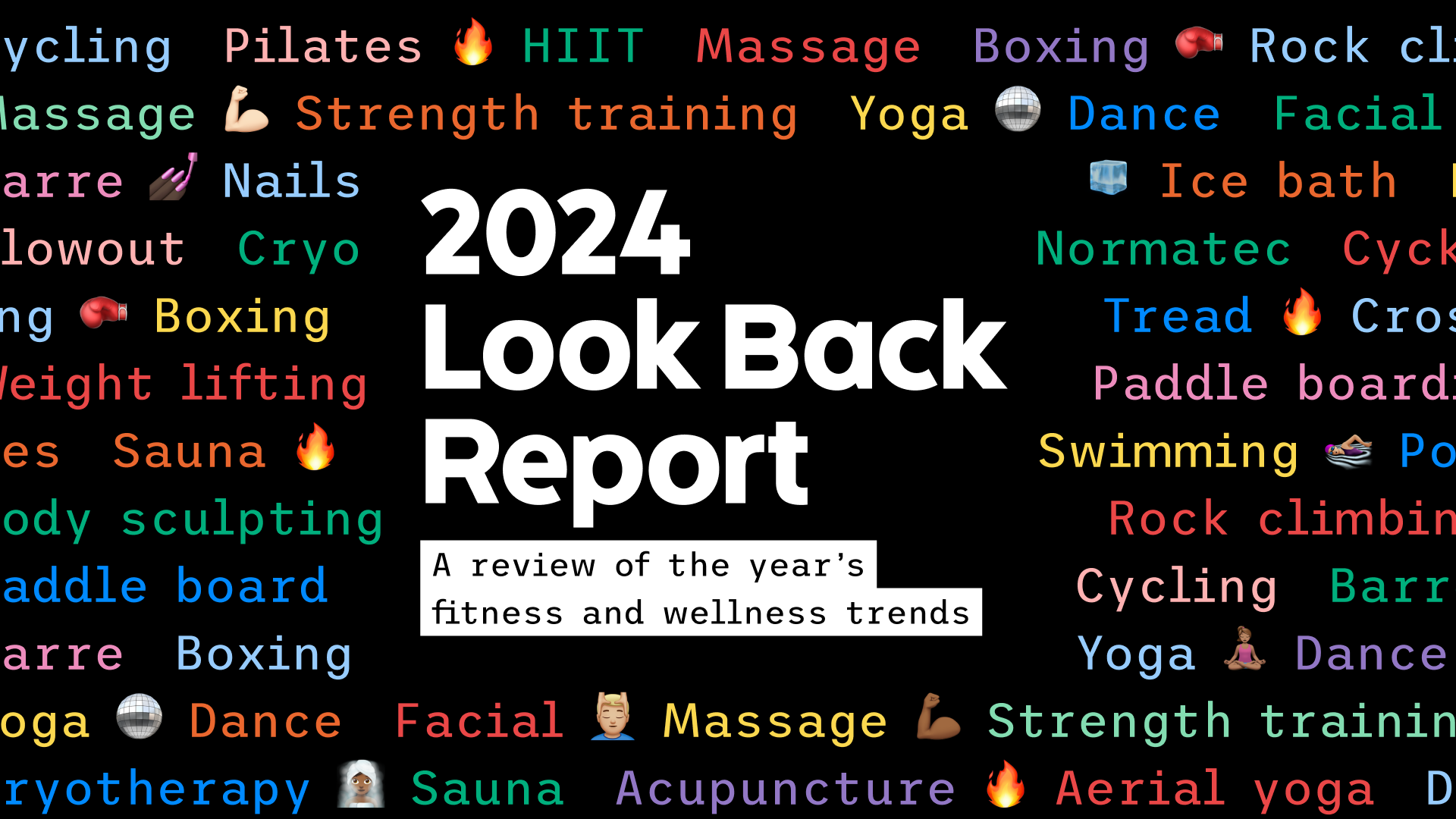Changing cities on your ClassPass membership is as simple as a few taps on an app. Doing it in real life? A bit more complicated. While people move for all sorts of reasons, it can be hard to identify the right moment to pull the trigger when there isn’t something pushing you to go somewhere new. Harder still is identifying whether you’re moving towards an exciting new adventure, or away from a situation that’s unhappy but fixable. After all, a post-breakup move is a lot harder to undo than a post-breakup haircut, so how do you keep yourself from making a rash decision?
How to know if you should try something new
We asked three professional therapists in California and Florida, the two most transient states in the country, for their insight into the most positive indicators for making a move.
You have an opportunity and you can’t miss it.
When your move involves a concrete change that you know will help you get closer to the life you want, you should see it as a positive thing. “Good reasons to consider a move to a new city include being accepted to a college program at a school you want to go to, getting the kind of job you have desired that you haven’t been able to get where you currently live, moving with your significant other or spouse if he or she has a school or job offer that is too good for your partner and for you as a couple to turn down,” says Yvonne Thomas, Ph.D., a Los Angeles-based psychologist whose specialties include life transitions and relationships. She also cites relocating for physical or emotional health-related reasons, being closer to family and/or friends who have moved to a new city, or feeling that you are more suited to live in a particular new city than where you are living now (if you’re living in the country, but are more of a “city person” or vice versa) as positive reasons to move.
You’ve dealt with your insides, and you feel stuck
“Individuals who are moving to escape or avoid something may want to reconsider if a move will solve their problems. A lot of time we fantasize about an amazing new life in a new city. However, most people’s lives do not drastically change when relocating. Our hobbies, interests, confidence, self-esteem and relationship style largely remain the same. You may have just moved from rural Ohio to Southern California, but you can’t escape you,” says Kathryn Esquer, a PsyD, MBA in Jacksonville, Fla.
That said, if you’ve worked hard on solving your problems and made a real effort at being happy where you are, and you aren’t making progress in feeling happier, a move could be the right decision. That work requires you to consider the sources of your frustration—a lack of social support, a mismatch between your values and the culture of your community, the distance from family—and to consider actions you’ve taken to improve these sources of stress. “Have you joined organizations with the intent to make new friends? Have to engaged with neighbors to learn more about them? Have you been Skyping and texting family members more frequently to stay connected? If you haven’t taken action to minimize your frustrations from your environment, then consider the aspects about yourself may be holding you back from being happy in your current location,” says Dr. Esquer.
You don’t have anything holding you back
“An ideal time in one’s life to make a move to a new place is when you have no or very few commitments or obligations to anyone or anything else,” says Dr. Thomas. “You are free to relocate and settle down in a new city without disrupting or causing chaos for you or others in your life.” If you’re in your 20s and feel like city hopping, that’s a positive thing, says Marion. Rodrigue, a licensed mental health counselor in Orlando, Fla. “Psychologically, you are also at the point in your life when you are figuring yourself out: what is important to you, what are your passions, your values, what are you good at, what are you looking for in a partner? Living in a new city can help you to grow and figure all of this out.”
If you constantly complain about where you live and can think of no reason to stay, trying out living someplace else might be helpful. “Even if the person ends up moving back, at least they’ve given someplace else a try and they won’t always wonder ‘what if,’” Rodrigue says.
You’ve been settled for a while
If your life is in turmoil and you just want to get away from it all, that’s exactly the wrong time to move, said all of our experts. “I always caution my clients to deliberately refrain from making any major life decisions, including moving to a new city, when they are in a very emotional state, given that people often choose to do the wrong things that they end up regretting when they are able to be more logical later,” says Dr. Thomas.
“Moving is considered one of the biggest stressors in life. It’s generally not a good idea to move if you’ve been experiencing depression, severe anxiety or other mental health issues. Moving away from your support system when you’re not doing well may not be a good idea,” says Rodrigue. Generally speaking, a big move will only add tension and stress to your life, so it’s not something to attempt until you’re sure you’re ready. If you’ve been in one place for a while, take advantage of it and take an extended vacation in a potential new location, says Dr. Esquer, so you can explore places with benefits that directly impact happiness.
You know where you want to go
When you’re in fantasy mode, it’s easy to envision yourself in any number of places. Spending weekends mountain biking in Denver may sound just as fun as beach volleyball in Santa Monica, but when you’re really planning to move, you want to have a clear idea of what you actually want out of a new location.
“To ensure that you’re moving to the right place for your specific set of goals, write down what your specific goals are so you can concretely identify and then verify that these goals are the ones you really want to strive for. Then, do thorough research on this new place to confirm that this city will have the resources and opportunities available to you which can help you meet your specific goals. For example, don’t just move to a place because you like the weather there but which doesn’t have a school program or work that you want to do,” says Dr. Thomas. “Also, it is a good idea to visit the new city at least once and stay for at least a week before making a decision to move there to help dispel ‘fairytale notions’ and find out if this new place realistically fits with your specific set of goals or not.”
The reverse of the employment/recreation equation is also true.”If you’re passionate about mountain biking during your free time, you might not be happy living in New York City, even if you land a high-paying job,” says Rodrigue.
You can make a real transition plan
While it’s tempting to just take the leap once you’ve figured out your next adventure, “it may not be a good idea to move away without money or employment prospects,” says Rodrigue. “It’s probably a better idea to stay in your current city until you can save enough money to cover expenses, as moving without money would certainly add a great deal of stress to an already stressful transition.”
Dr. Thomas recommends coming out to the new city before your actual move to find housing so you can move directly into your new residence, rather land somewhere temporary and have to plan a second move. “Try to have friends and family help you pack your belongings and clean up your current home for the double benefit of assisting you with the physical labor of it all as well as having more time together as you are phasing out living there. Also, find out if your loved ones and acquaintances know people that live in the new city you are moving to so you can have some instant people to reach out to when you move there,” says Dr. Thomas.
And most importantly, remember that feeling a little sad or anxious doesn’t mean you’re making the wrong choice. “Every change involves loss and every loss must be grieved,” says Dr. Esquer. “Be honest with yourself about what you might find most difficult about the move. Take steps to minimize the potential sources of stress make plans to enjoy the benefits of the move.”







